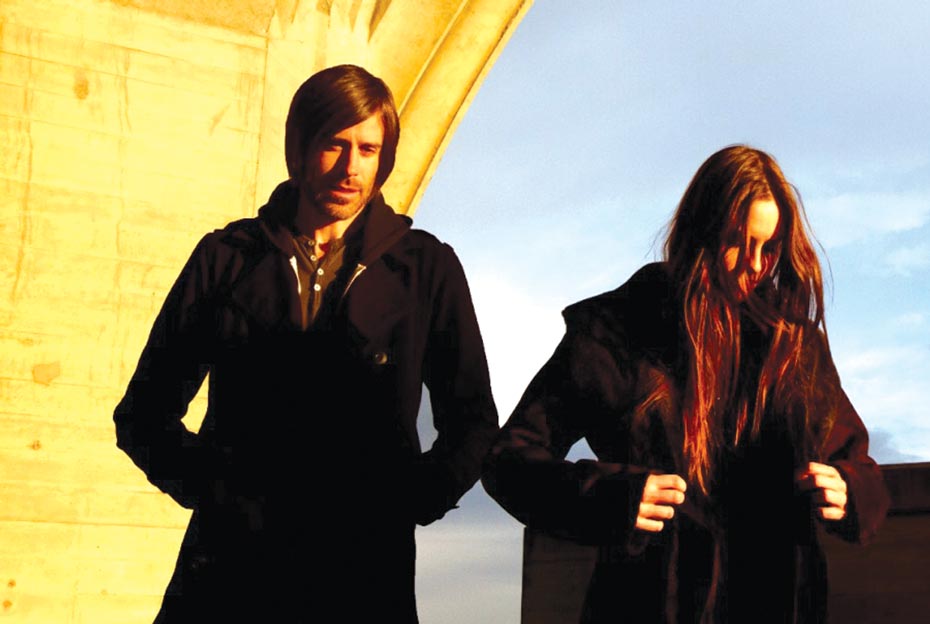Marriages


Marriages, the Los Angeles-based rock trio, plays like a long fuse. The music is a slow burn, building to the ultimate pop-off that is expected but somehow always surprising. Kitsune, the group’s first EP from 2012, exemplifies these traits in its structure, style and sound, and one can only wonder how the next full-length will build on it.
Emma Ruth Rundle (of the Red Sparowes) brings a claustrophobic vocal intensity that proves a formidable counterpart to her equally moody and grinding guitar lines. The bass of Greg Burns (also of the Red Sparowes) churns and pulsates, creating a palette of gritty exuberance and decay.
At their meatiest, Marriages sounds like a roiling conglomeration of post-rock soundscape and psychedelic synth rock, with elements of experimental sympathies mixed around for good measure. “Ride In My Place,” the opening track from Kitsune, ebbs and flows with droning, fuzzy guitar wails and pounding drum work, all while Rundle’s vocals coax and coil. As a single track, it is self-sufficient; it doesn’t need and introduction or postscript, but, as a piece of the larger album, it successfully encapsulates the wide variety of shades and tones the group is capable of producing. At the opposite end of the spectrum — and as the album’s final track — “Part of the Dark” exposes the group’s nuance, with softer instrumentation in the beginning and a whispery vocal line. It eventually builds to a cacophonic peak, but the entire piece is tempered with restraint.
Quick Tracks
“Ten Tiny Fingers” — A compellingly built track that starts with a simple, bell-like synth line and guitar counterpoint. It’s a night-tinged piece of psychedelic rock with a heaviness that tugs like a sinking anchor.
“Ride In My Place” — As a piece of the larger whole, this track rides like a locomotive that demonstrates the power and pull of a shadowy soundscape. Heavy guitars and a high-hat laden percussion line provide a gripping experience.
Marriages is an interesting group, offering multiple perspectives, and as the group continues to explore and build its repertoire, the music’s growth will continually reflect this studied complexity. »
– Charles Trowbridge




